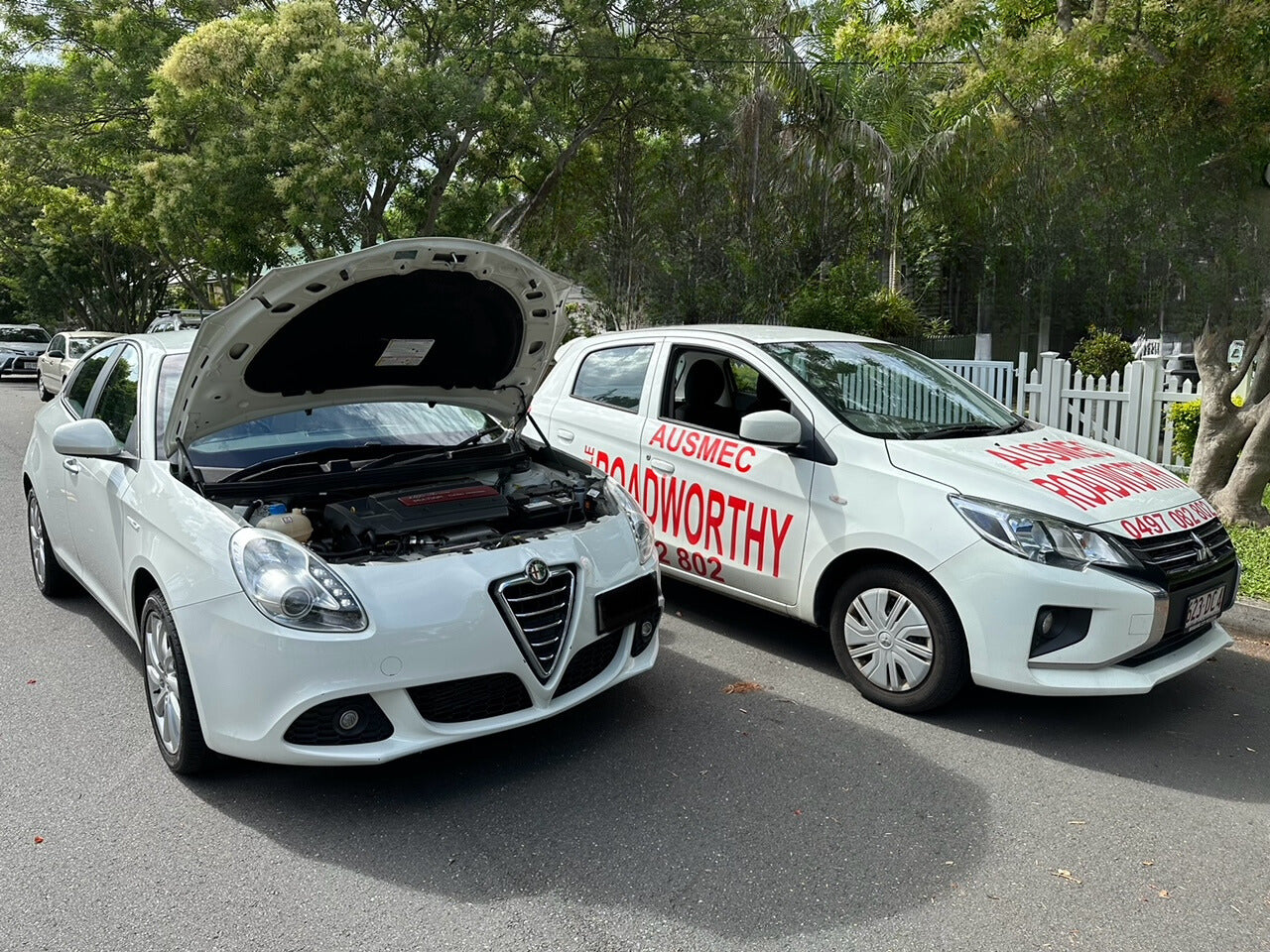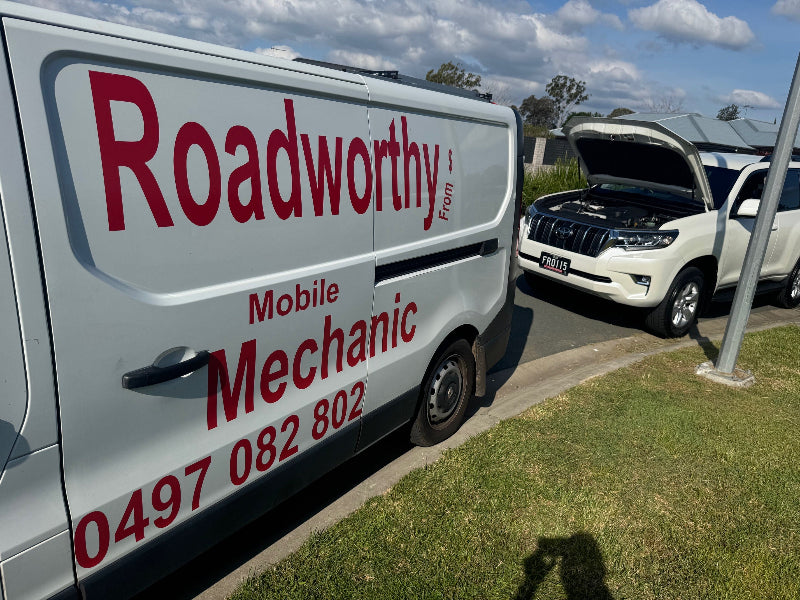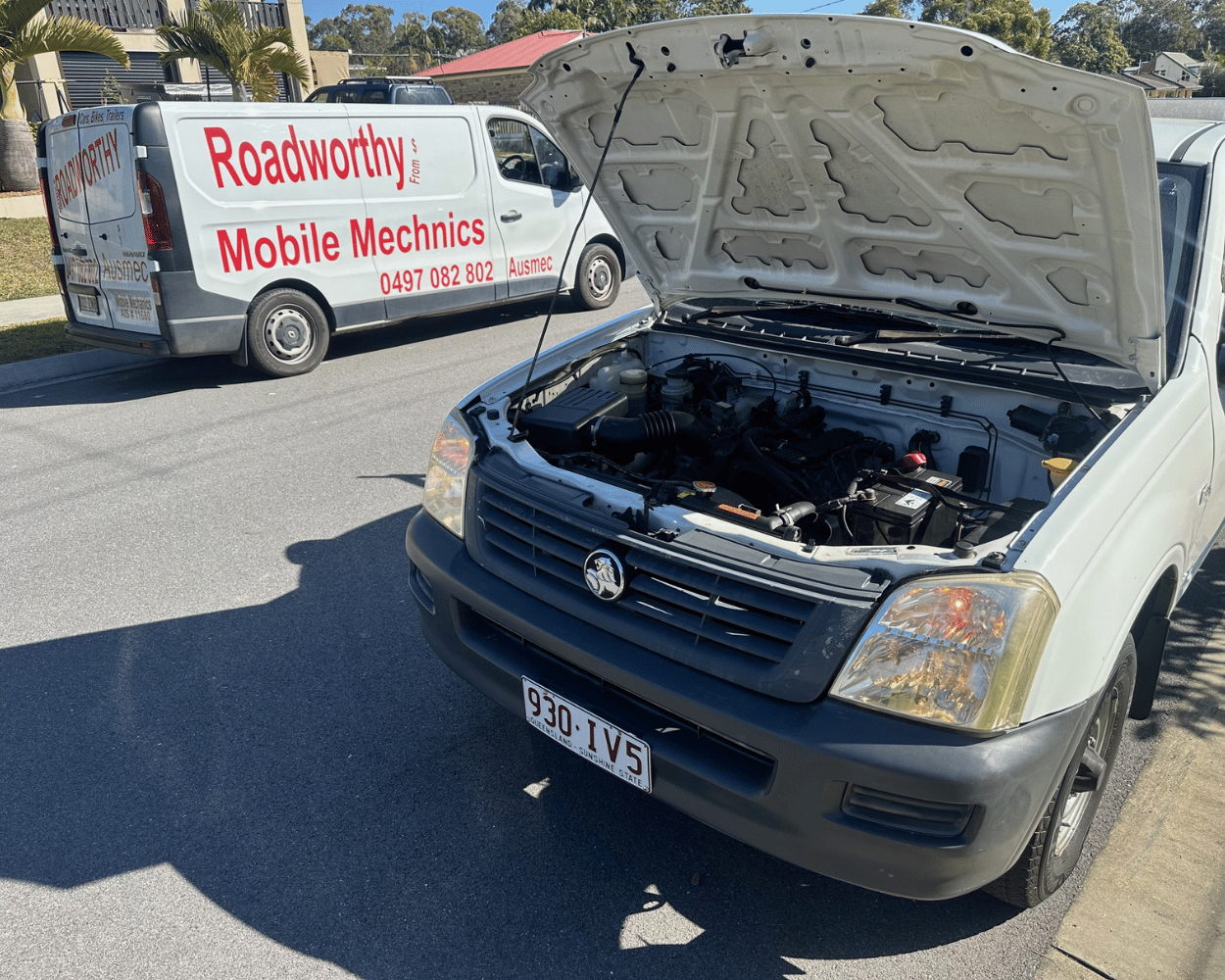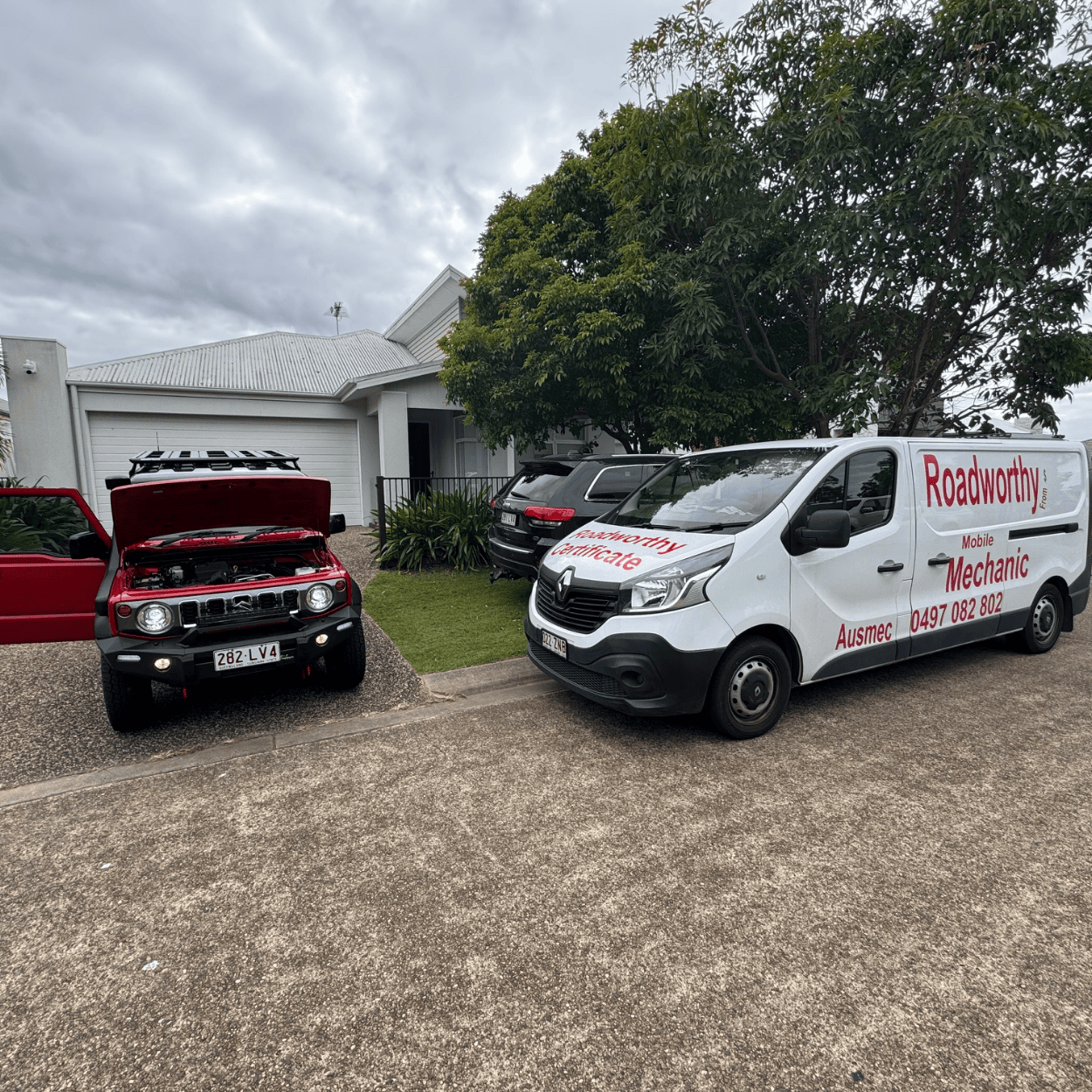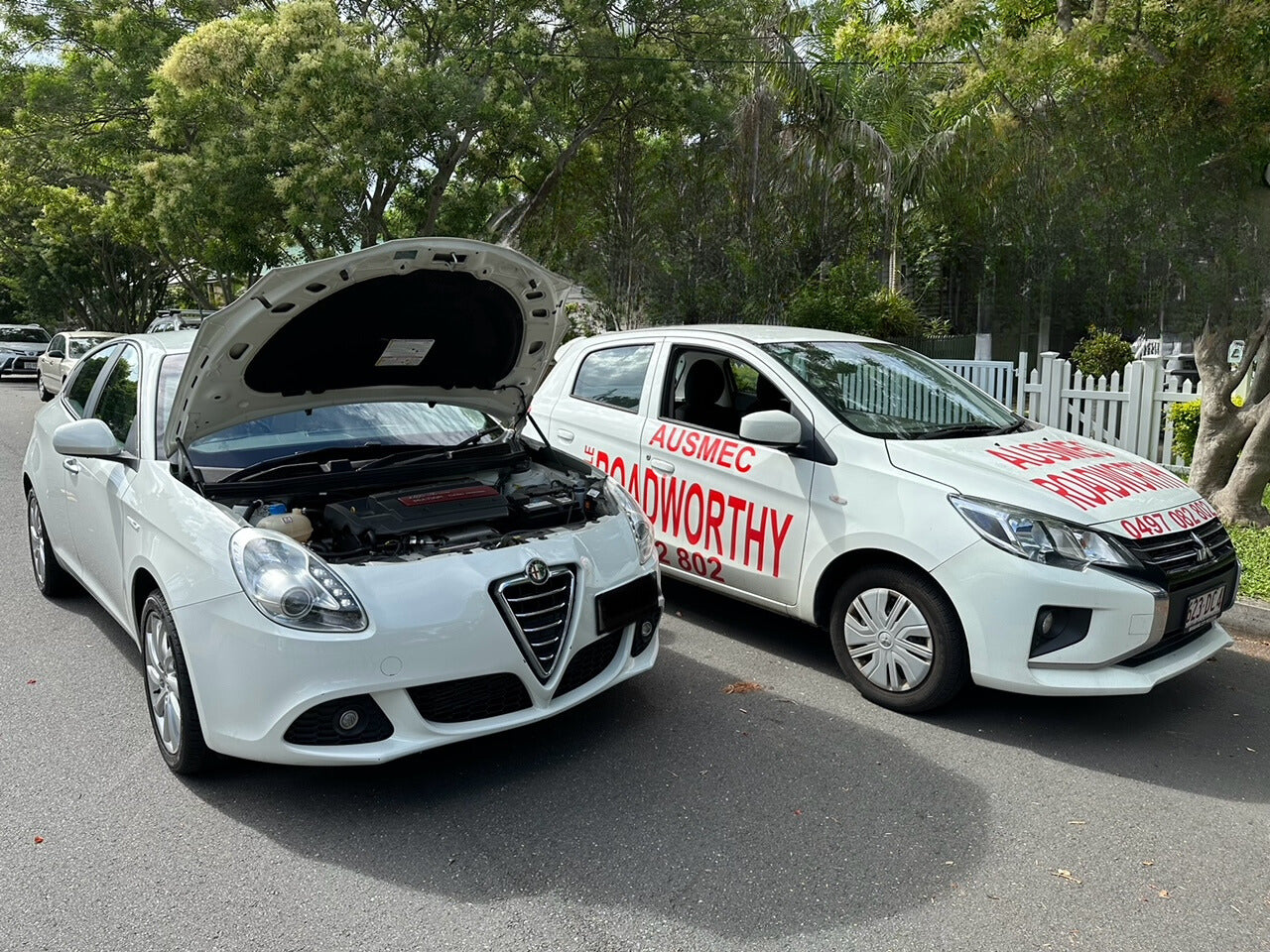Roadworthy Trailers and Caravans Coupling,Chassis
Trailer Steering and Suspension Rejection Reasons (according to the Queensland Light Vehicle Inspection Manual)
The LVI Manual outlines reasons why a trailer's steering and suspension system might fail an inspection. Here's a breakdown of the key points:
Steering Components (T):
- General Condition: Any steering component that's missing, cracked, broken, not securely mounted, damaged, or has free play exceeding manufacturer's limits will be rejected (T).
- Steering Stops: Steering stops must prevent wheels or tires from contacting the chassis or suspension on full lock. If they don't, it's a rejection (T).
- Fasteners: Missing or loose fasteners on steering components will cause rejection (T).
- Modifications: Steering components that have been removed, heated, welded, or bent without approval will not pass (T).
Steering Free Play (T):
- There's a maximum allowable free play in the steering wheel rim. Exceeding this limit (specified in the manual) is a rejection (T).
Steering Linkage Mechanism (T):
- Wheels must be able to turn freely left and right when lifted off the ground. If not, it's a rejection (T).
- Damaged, worn, misaligned, or incorrectly fitted linkages will lead to rejection (T).
- Tie rod and drag link ends must be securely fastened with appropriate locking mechanisms (e.g., split pins, lockwire) (T).
- Excessive free play in any component due to wear is a rejection (T). There's a specified limit (refer to the manual).
- Loose or excessively worn steering idler or bushing will cause rejection (T). The manual specifies the maximum free movement allowed.
- Throughout the steering range, stops must prevent wheels/tires from hitting the chassis or suspension components (T).
Arms and Linkages (T):
- Movement in the spline between the pitman arm and steering box, or any threaded/tapered joint, is a rejection (T).
- Excessive free movement measured at the front/rear tire when turning (refer to the manual for specified limits) will not pass inspection (T).
Suspension Components (T):
- Distorted, cracked, corroded, fractured, or excessively worn suspension components will be rejected (T).
- Free play exceeding manufacturer's limits in any suspension component is a rejection (T). There's also a general limit specified if no manufacturer info is available.
- Link ends must be secured with appropriate locking fasteners (T).
- Missing, loose, insecurely mounted, bent, or improperly repaired/modified suspension components will cause rejection (T).
Spring Media (Springs, Spring Hangers, etc.) (T):
- Components like axles, U-bolts, spring hangers, and center bolts must be correctly aligned, adjusted, securely mounted, and free from missing parts, wear, rust, cracks, or damage (T).
- Nuts must fully engage U-bolts, otherwise it's a rejection (T).
- Suspension height adjustments exceeding a specific range (refer to the manual) will not be approved (T).
- Any cracked, broken, missing, or displaced spring is a rejection (T). There's also a limit on how much a spring can be displaced.
- Non-standard or unapproved air/hydraulic suspension systems are not allowed (T). Specific exceptions are mentioned in the manual.
- Airbag or hydraulic suspension components, if fitted, must be functional and free from leaks or perishing (T).
- Coil springs must stay seated throughout suspension movement (T).
- Lowering or raising a vehicle body must comply with the manufacturer's specifications for unladen weight. Refer to the LVI Manual for specific rejection reasons related to ride height, rebound travel, lighting height, and suspension balance (T).
- Lowering coil springs by cutting or heating is not allowed (T).
- Modifying leaf spring suspension using metal plates or repositioning them is a rejection (T).
- Lowering blocks must be made of steel or aluminum only (T).
Axle Locating Arms and Devices (Shackles and Bushes) (T):
- Axle locating devices that are not functional, excessively worn, cracked, damaged, insecurely mounted, or incorrectly adjusted will cause rejection (T).
- Extended or unapproved shackle plates are not allowed (T). Exceptions might exist based on manufacturer approval.
- Excessive free movement in pivot pins, kingpins, ball joints, bushes, or trunnions (refer to the manual for specified limits) will lead to rejection (T).
Sway Bars, Linkages, and Bushes (T):
- Broken, loose, excessively worn, disconnected, or removed sway bar components will not pass inspection (T).
Wheel Bearings (T):
- Any improperly adjusted, rough,
Contact form
1
/
of
4
Ausmec Mobile RWC & Mechanics
Mobile Roadworthy (Safety certificate)
Regular price
$145.00
Regular price
Sale price
$145.00
Unit price
/
per
Shipping calculated at checkout.
Share
